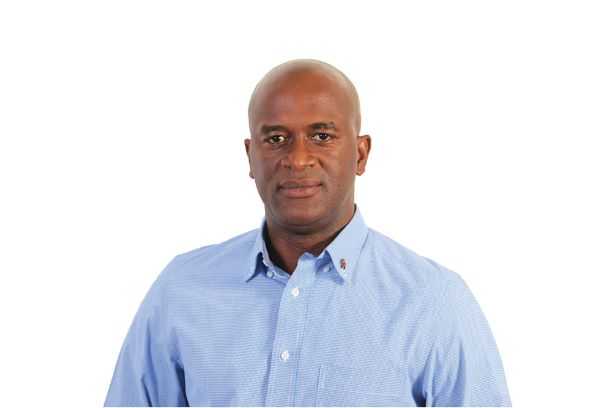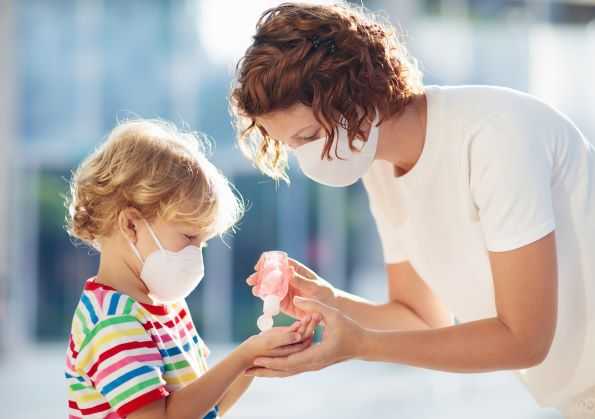Today PointeXpress joins with the CARICOM Energy Desk in focusing on Antigua and Barbuda’s Churchill Norbett
Churchill Norbert recognised as CARICOM Energy Personality; takes sustainable tourism to new heights for Antigua and Barbuda
By Tenille Clarke
Community development has long moved beyond a buzz phrase for Churchill Norbert: it is unquestionably a revered act of national service that he continues to undertake with great pride in his day-to-day personal and professional pursuits. A father of two brilliant children and a doting husband, Norbert was born in St. Lucia – which he describes as a gem of an island.
“St. Lucia has a lot of natural beauty. We talk about The Pitons, the rivers. If you love nature, that is the island for you,” he explains.
With similar adulation, he refers to Antigua and Barbuda’s relatively flat topography as a geographical signature of the twin-island.
“As many may have heard before, the beauty of our beaches in Antigua gives visitors 365 choices,” he says of the island which has been his home for the last 18 years. “We also have a very multicultural environment; it’s like a melting pot of beautiful people from all over the Caribbean and the world. When you speak about Caribbean integration and different nationalities within the CARICOM region, you will truly find that here in Antigua,” he effortlessly notes.
Almost as a second nature, tourism is a conversational and experiential strong-suit for Mr. Norbert, having worked with the award-winning Sandals Resorts International in both St. Lucia and Antigua.
As a Chief Engineer who has worked in the industry for almost three decades, he has completed training and attained designations in a number of key areas – including Facilities Management, Electrical Engineering, Energy Management, Renewable Energy and Project Management.
With scholastic certifications obtained at the tertiary level in Las Vegas, Jamaica and Canada, Norbert has worked assiduously to improve the electrical systems and process of arguably the most renowned hotel chain in the Caribbean Region.
“When I first got started in the energy industry, the technology was very different. Looking at the options in terms of efficiency, the control devices, automated systems; a lot of what we had to do back then was done manually,” he explains of the early 1990’s.
Bringing that infrastructure up to speed, some of Norbert’s impressive achievements with Sandals include the implementation of infrared testing systems; the design and installation of Reverse Osmosis Plants and the realization of a robust energy-efficient system at the hotel properties.
“Sandals was really the foundation where I truly got deep into the sustainability and energy aspect of my career. A lot of what we did was based on the shared corporate vision on our priority list,” he elucidates.
Praising the Preventative Maintenance Program at the Electrical Department within the organisation, Norbert also focused on the training and development components, noting that, “a lot of the certifications I was able to acquire was done through investing in me, as well as the employees, to ensure that we were capable of responding to the demand of the resort.”
Global certification programmes such as “Green Globe” allowed for a laser-focus on annual targets to reduce energy consumption by three percent.
“It was a challenge, so we thought about various projects that would reduce that quantity. Some of the first things we looked at were monitoring sub-metres and consumption in specific areas; paying attention to key performance indicators and starting retrofits when the technology became available, such as pool pumps and shifting from conventional air-conditioning split units into the inverter units that were much more efficient.”
Those activities paid off in not only significantly reducing usage, but also in increasing a culture of awareness that balanced human resource building with the technical capacity.
“The team always saw these measures as adding value to the business product,” he summarises. “You overdeliver, exceed the guests’ expectations, and you noticed a direct benefit of improving the guest experience. That was a way to measure customer satisfaction which was very positive in gaining loyal, repeat customers.”
As an adjunct Lecturer at the University of the West Indies Open Campus, Norbert has brought similar value to the “Introduction to Facilities Management” programme, which he calls an absolute joy.
“The interest level and burning desire for knowledge is very high, not just for the students, but the private and public sector workplaces that sponsor their academic involvement,” he says. “It’s about wanting to know more to do more, and the need to have very good, trained professionals who can now look after the proper management of these facilities and make sense of the best practices and standard operating procedures.”
Acknowledging that there is still more work to be done on the sustainable energy front, Mr. Norbert continued his contributions by bringing that wealth of hospitality experience to another important role – as Coordinator for the Energy for Sustainable Development in the Caribbean Buildings Project, which was completed in September 2020. With the involvement of give member-states – Antigua and Barbuda, Belize, Grenada, St. Lucia and St. Vincent and the Grenadines – he describes the regional project as ‘very well-developed’, with the collective goal of implementing capacity building, codes and standards for the region’s collective benefit.
“Each country was responsible for one key component of the project, and Antigua and Barbuda handled the public awareness arm of energy efficiency and renewable energy, with demonstration sites that could be replicated in other islands.”
Norbert underscored the recent catastrophic hurricanes that battered the Region and explained that state leaders agreed that it is time to establish policies, standards and codes that would help to strengthen the resilience of the Caribbean.
“We also developed policy instruments and grade manuals that would help us look closer at the institutional framework to support and promote energy efficiency and to make more environmentally-friendly decisions, as it relates to buildings” he justified.
By 2030, Mr. Norbert’s hope is that Antigua and Barbuda can reduce its carbon footprint by 38 per cent, confirming that the country is on the already right track with its environmental management systems to support that upward trajectory.
“The national contributions will be reviewed [in Cabinet] very soon, but when I look at the activities on the ground as a Project Coordinator with the Department of Environment – the pipeline of activities that are being done that focus on interventions to improve on renewable energy standards, we’re on stream,” he asserts.
Looking at public and private schools, health clinics, desalination plants and other key sites, a critical component will be securing buy-in from all stakeholders to move forward and to create a smooth transition away from fossil fuels.
“For some people, it’s still not a reality. Looking at the average citizen, the energy efficiency challenge has been the financial impact of procuring and installing energy efficiency appliances, so the solution starts with lower interventions and behaviours,” he says. “As time goes by, my hope on the renewable energy front is that we can look at introducing a flexible tariff for bigger commercial systems for private sector that incentivizes these changeovers to make it more attractive.”
In reimagining the intersectionality of energy efficiency and hospitality during the COVID-19 pandemic, Mr. Churchill Norbert is looking to future generations to action the sense of urgency throughout the CARICOM Member-States to help build a regional vision that will withstand the test of time.
“Now more than ever, the economic gains and environmental benefits for a more sustainable Caribbean will come from more private-public partnerships at all levels,” he summarises. “The children are an integral part of the process and involving them through education at a very young age makes them the best promoters of behaviour. This is how you will know that tomorrow’s future will be secured.”
This article is part of the CARICOM Energy Personality Series, an activity of CARICOM Energy Month 2020 and is produced by the CARICOM Energy Unit, the Caribbean Centre for Renewable Energy and Energy Efficiency (CCREEE), and the European Union (EU) and the German Federal Ministry of Economic Development and Cooperation (BMZ) funded, Technical Assistance Programme for Sustainable Energy in the Caribbean (TAPSEC). The series aims to give recognition to regional energy champions who have made exceptional contributions in the areas of renewable energy, energy efficiency, energy access, resilience, and rural electrification throughout the Caribbean Community. To read more features within the series, please visit us at https://energy.caricom.org.


